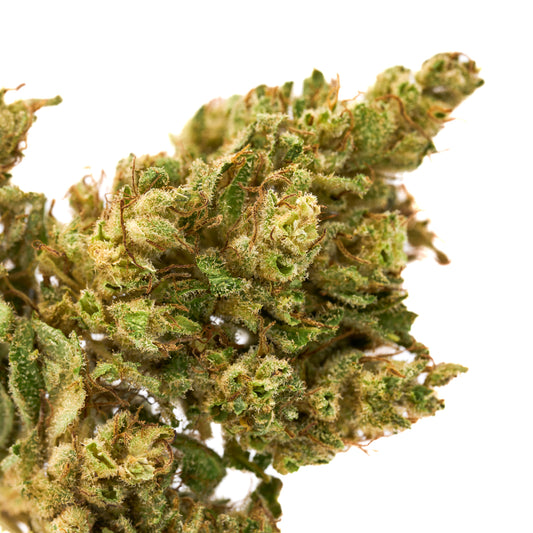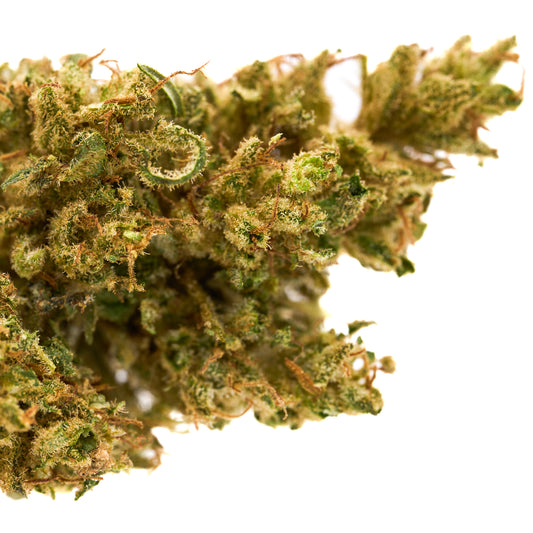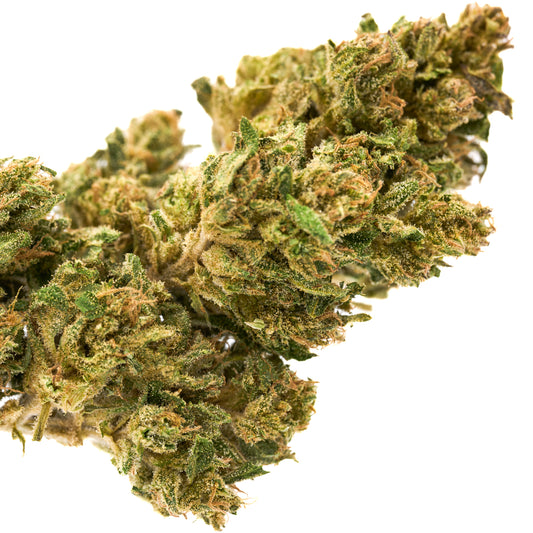Are Disposable Vapes Safe for THCA and CBD?
Are Disposable Vapes Safe for THCA and CBD? A Comprehensive Guide to Safe Vaping Practices
The cannabis and hemp industries have witnessed an unprecedented surge in disposable vape products, particularly those containing THCA and CBD compounds. From the popular blue dream thca vape to soothing cotton candy cbd vape options, consumers are embracing the convenience and portability these devices offer. However, as the market expands, questions about safety, quality control, and proper usage practices have become increasingly important for both individual users and businesses seeking thca disposable vape wholesale options.
Disposable vapes have revolutionized how people consume cannabis and hemp products, offering a user-friendly alternative to traditional smoking methods. The appeal is undeniable: no charging, no refilling, no maintenance – simply unpack and enjoy. Yet beneath this convenience lies a complex landscape of manufacturing standards, ingredient quality, and safety considerations that every consumer should understand before making their next purchase.
Understanding THCA and CBD in Disposable Vapes
Before diving into safety considerations, it's essential to understand what you're actually consuming when you use a thca vape or CBD disposable device. THCA (tetrahydrocannabinolic acid) is the non-psychoactive precursor to THC found in raw cannabis plants. When heated through vaping, THCA converts to THC through a process called decarboxylation, creating the familiar psychoactive effects associated with cannabis consumption.
CBD (cannabidiol), on the other hand, remains non-psychoactive regardless of heating and is prized for its potential therapeutic benefits without the intoxicating effects. Both compounds can be safely vaporized when properly extracted and formulated, but the safety of your vaping experience depends heavily on the quality of the extraction process, the purity of the final product, and the integrity of the delivery device itself.
The extraction methods used to obtain these cannabinoids play a crucial role in the final product's safety profile. CO2 extraction, considered the gold standard in the industry, produces clean, solvent-free concentrates ideal for vaping. However, some manufacturers may use cheaper extraction methods involving butane, propane, or other solvents that, if not properly purged, can leave harmful residues in the final product.
The Construction and Components of Disposable Vapes
Understanding the anatomy of disposable vapes is crucial for assessing their safety. These devices typically consist of several key components: a battery, heating element (coil), wick or ceramic heating chamber, oil reservoir, airflow system, and mouthpiece. Each component presents potential safety considerations that conscientious consumers should understand.
The battery, usually a small lithium-ion cell, powers the heating element that vaporizes the cannabinoid oil. Quality batteries from reputable manufacturers include safety features like overcharge protection, temperature regulation, and short-circuit prevention. However, cheaper devices may use substandard batteries that pose risks of overheating, leaking, or even exploding in extreme cases.
The heating element, whether a traditional metal coil or ceramic chamber, directly contacts your vaping material. High-quality thca vapes use medical-grade materials that won't degrade or release harmful particles when heated. Inferior heating elements may contain lead, cadmium, or other toxic metals that can leach into the vapor you inhale.
The wick system, responsible for drawing oil from the reservoir to the heating element, traditionally uses cotton or similar natural fibers. However, some manufacturers use synthetic materials that may release harmful compounds when heated. This is why many premium brands specifically advertise "organic cotton" or "ceramic" heating systems in their northern lights thca vape and other products.
Battery Safety and Quality Concerns
Battery safety represents one of the most significant concerns with disposable vapes. Unlike rechargeable devices where users can choose high-quality batteries from reputable manufacturers, disposable vapes come with pre-installed batteries that vary dramatically in quality and safety features.
Premium disposable vapes incorporate batteries with multiple safety mechanisms, including automatic shutoff features that prevent overheating during extended use sessions. These devices typically include protections against overcharging, short circuits, and temperature extremes that could lead to battery failure or dangerous situations.
However, the market is flooded with cheaper alternatives that may use substandard batteries lacking these essential safety features. These inferior batteries pose several risks: they may overheat during normal use, potentially causing burns or fires; they might leak corrosive electrolytes that can damage the device and pose health risks; and in extreme cases, they could explode or catch fire, particularly if damaged or exposed to extreme temperatures.
When shopping for thca disposable vape products, consumers should prioritize brands that transparently discuss their battery specifications and safety features. Reputable manufacturers often provide detailed information about their battery suppliers and safety testing procedures, giving consumers confidence in their purchase decisions.
Ingredient Quality and Additive Concerns
The safety of disposable vapes extends far beyond the hardware to encompass the quality and purity of the vaping oil itself. Premium bulk thca vapes from reputable manufacturers use pure cannabinoid extracts combined with natural terpenes and minimal, food-grade additives when necessary for consistency and flavor.
However, the unregulated nature of many cannabis and hemp markets means that some products may contain concerning additives. Vitamin E acetate, used as a thickening agent in some vape oils, gained notoriety during the EVALI (E-cigarette or Vaping Product Use-Associated Lung Injury) outbreak of 2019. While this particular crisis was primarily associated with black market THC cartridges, it highlighted the importance of knowing exactly what ingredients are in your vaping products.
Other additives of concern include propylene glycol (PG) and vegetable glycerin (VG), commonly used in nicotine vapes but potentially problematic in cannabis products. While generally recognized as safe for ingestion, these compounds may produce harmful byproducts when heated to the high temperatures required for cannabinoid vaporization. Some individuals also experience sensitivity reactions to these additives, including throat irritation, coughing, or allergic responses.
Premium manufacturers of wholesale thca vapes typically avoid unnecessary additives altogether, relying instead on natural terpenes for flavor and maintaining oil consistency through careful extraction and formulation processes. These "additive-free" products may cost more but offer peace of mind for safety-conscious consumers.
Laboratory Testing and Quality Assurance
Perhaps the most critical factor in determining the safety of any disposable vape product is comprehensive laboratory testing. Reputable manufacturers subject their products to extensive third-party testing that screens for a wide range of potential contaminants and verifies cannabinoid potency and profile.
Standard testing panels for quality thca disposable vape bulk products should include pesticide screening, heavy metals analysis, residual solvent testing, microbial contamination screening, and cannabinoid potency verification. Some advanced manufacturers also test for mycotoxins (toxic compounds produced by molds and fungi) and conduct additional safety assessments specific to vaping products.
Pesticide testing is particularly important because cannabis and hemp plants are bioaccumulators, meaning they readily absorb compounds from their growing environment. If grown with pesticides or in contaminated soil, these harmful chemicals can concentrate in the final extract. Heavy metals like lead, cadmium, mercury, and arsenic can also accumulate in plants and pose serious health risks when vaporized and inhaled.
Residual solvent testing ensures that extraction solvents like butane, propane, or ethanol have been properly purged from the final product. Even trace amounts of these solvents can be harmful when repeatedly inhaled, making this testing crucial for vaping products.
Microbial testing screens for harmful bacteria, yeast, and mold that could cause infections or respiratory issues. This testing is especially important for immunocompromised individuals who may be more susceptible to microbial infections.
Environmental and Disposal Considerations
The convenience of disposable vapes comes with significant environmental responsibilities that safety-conscious consumers must consider. Each disposable device contains a lithium-ion battery, electronic components, and plastic housing that require proper disposal to prevent environmental contamination and potential safety hazards.
Improper disposal of lithium-ion batteries poses multiple environmental and safety risks. When thrown in regular trash, these batteries can leak toxic chemicals into soil and groundwater, potentially contaminating local ecosystems. In landfills, damaged batteries may catch fire or explode, creating dangerous situations for waste management workers and potentially causing larger fires.
The proper disposal process for your used thca vapes involves taking them to designated e-waste recycling centers or battery recycling programs. Many electronics retailers, automotive stores, and municipal recycling centers accept small lithium-ion batteries for proper processing. Some forward-thinking vape manufacturers have even established take-back programs where consumers can return used devices for responsible recycling.
Before disposal, consumers should take several safety precautions. Never attempt to disassemble the device or remove the battery, as damaged lithium-ion batteries can be dangerous. If the device shows signs of damage, swelling, or leakage, handle it carefully and dispose of it immediately at an appropriate facility. Store used devices in a cool, dry place away from flammable materials until you can properly dispose of them.
Best Practices for Safe Usage
Even with high-quality products, proper usage techniques are essential for maximizing safety and minimizing risks. Chain-vaping, or taking multiple rapid draws in succession, can cause the heating element to overheat, potentially degrading the oil, producing harmful byproducts, or even damaging the device's safety mechanisms.
Temperature control is crucial for safe vaping. While disposable devices don't typically offer user-adjustable temperature settings, you can control the heat through your drawing technique. Slow, steady draws allow for more controlled heating and better vapor production while reducing the risk of overheating. Quick, aggressive draws can cause temperature spikes that may compromise both safety and flavor.
Storage conditions significantly impact both safety and product longevity. Disposable vapes should be stored in cool, dry environments away from direct sunlight and extreme temperatures. High temperatures can cause oil to leak, batteries to degrade, or internal pressure to build up dangerously. Extremely cold temperatures can also affect battery performance and oil consistency.
Identifying Reputable Brands and Products
With the proliferation of disposable vape products in the market, distinguishing between quality manufacturers and questionable operators becomes crucial for consumer safety. Reputable brands invest heavily in quality control, testing, and transparency, while less scrupulous operators may cut costs in ways that compromise safety.
Look for manufacturers that provide comprehensive product information, including detailed ingredient lists, extraction methods, and testing results. Quality brands proudly display their laboratory testing certificates, often called Certificates of Analysis (COAs), making them easily accessible to consumers through websites or QR codes on packaging.
Professional packaging and branding often indicate higher manufacturing standards. While flashy packaging doesn't guarantee quality, products with professional labeling, clear ingredient lists, proper warnings, and batch tracking information typically come from more established operations with better quality control processes.
Customer reviews and third-party testing can provide valuable insights into product quality and safety. However, be wary of fake reviews and seek out detailed, technical reviews from knowledgeable sources rather than relying solely on brief testimonials.
Health Considerations and Risk Factors
While vaping is generally considered safer than smoking, it's not without potential health risks that consumers should understand. Individual sensitivity to various compounds can vary significantly, and some people may experience adverse reactions even to high-quality products.
Respiratory sensitivity is perhaps the most common concern. Some individuals may experience throat irritation, coughing, or respiratory discomfort when vaping, particularly if they have pre-existing respiratory conditions like asthma or COPD. Starting with small doses and observing your body's response is advisable for new users.
Allergic reactions to specific terpenes or other ingredients can occur, even with natural compounds. Common symptoms include skin irritation, respiratory issues, or digestive discomfort. If you experience any unusual symptoms after vaping, discontinue use and consult with a healthcare provider.
Cardiovascular considerations are also important, particularly for individuals with heart conditions. While research on vaping's cardiovascular effects is still evolving, some studies suggest that vaping can temporarily increase heart rate and blood pressure. Anyone with cardiovascular concerns should consult with their doctor before using any vaping products.
Regulatory Landscape and Quality Standards
The regulatory environment for disposable vapes varies significantly by jurisdiction, creating challenges for consumers trying to assess product safety. In some areas, strict regulations govern manufacturing standards, testing requirements, and labeling practices, while other regions have minimal oversight.
Federal regulations in the United States provide some baseline standards, but state and local laws often add additional requirements. Some states require comprehensive testing, child-resistant packaging, and detailed labeling, while others have minimal requirements. This patchwork of regulations means that consumers must often rely on manufacturer self-regulation and industry best practices.
Industry certifications and standards can provide additional assurance of quality and safety. Organizations like the Cannabis Trade Federation and various state cannabis industry associations often establish voluntary standards that exceed minimum regulatory requirements. Products from manufacturers that participate in these voluntary programs may offer additional safety assurances.
Economic Considerations and Wholesale Markets
For businesses considering entering the disposable vape market, understanding safety considerations becomes even more critical. Retailers and distributors have both legal and ethical responsibilities to ensure the products they sell meet appropriate safety standards.
When sourcing thca disposable vape wholesale products, businesses should conduct thorough due diligence on their suppliers. This includes verifying testing procedures, reviewing manufacturing standards, and ensuring compliance with all applicable regulations. The lowest-cost option is rarely the best choice when safety and reputation are considered.
Product liability considerations make safety paramount for businesses. Selling unsafe or untested products can result in serious legal and financial consequences, not to mention potential harm to customers. Investing in quality products from reputable manufacturers protects both consumers and business interests.
Future Developments and Innovations
The disposable vape industry continues to evolve, with manufacturers developing new technologies and safety features to address consumer concerns. Innovations in battery technology, heating elements, and oil formulations promise to make future products safer and more reliable.
Advanced heating technologies, such as ceramic chambers and temperature-controlled coils, offer more precise heating that can reduce the risk of creating harmful byproducts. Some manufacturers are experimenting with smart features that monitor usage patterns and prevent overheating through automatic shutoff systems.
Sustainable design initiatives are beginning to address environmental concerns associated with disposable products. Some companies are developing biodegradable components, implementing take-back programs, or creating hybrid devices that combine disposable convenience with some reusable elements.
Conclusion
The safety of disposable vapes for THCA and CBD consumption depends on multiple factors, from manufacturing quality and ingredient purity to proper usage and disposal practices. While these products offer undeniable convenience and portability, consumers must remain vigilant about choosing reputable brands, understanding proper usage techniques, and disposing of devices responsibly.
Quality products from established manufacturers, supported by comprehensive laboratory testing and transparent business practices, can provide relatively safe and enjoyable vaping experiences. However, the market's current variability in standards and regulations means that consumer education and careful product selection remain essential for safety.
As the industry matures and regulations evolve, we can expect continued improvements in safety standards, product quality, and environmental responsibility. Until then, informed consumers who prioritize quality over price and take the time to research their purchases will be best positioned to enjoy the benefits of disposable vapes while minimizing potential risks.
Whether you're interested in a blue dream thca vape for personal use or exploring bulk thca vapes for business purposes, remember that your safety and satisfaction depend on making informed choices based on quality, testing, and manufacturer reputation rather than price alone.












Leave a comment
Please note, comments need to be approved before they are published.